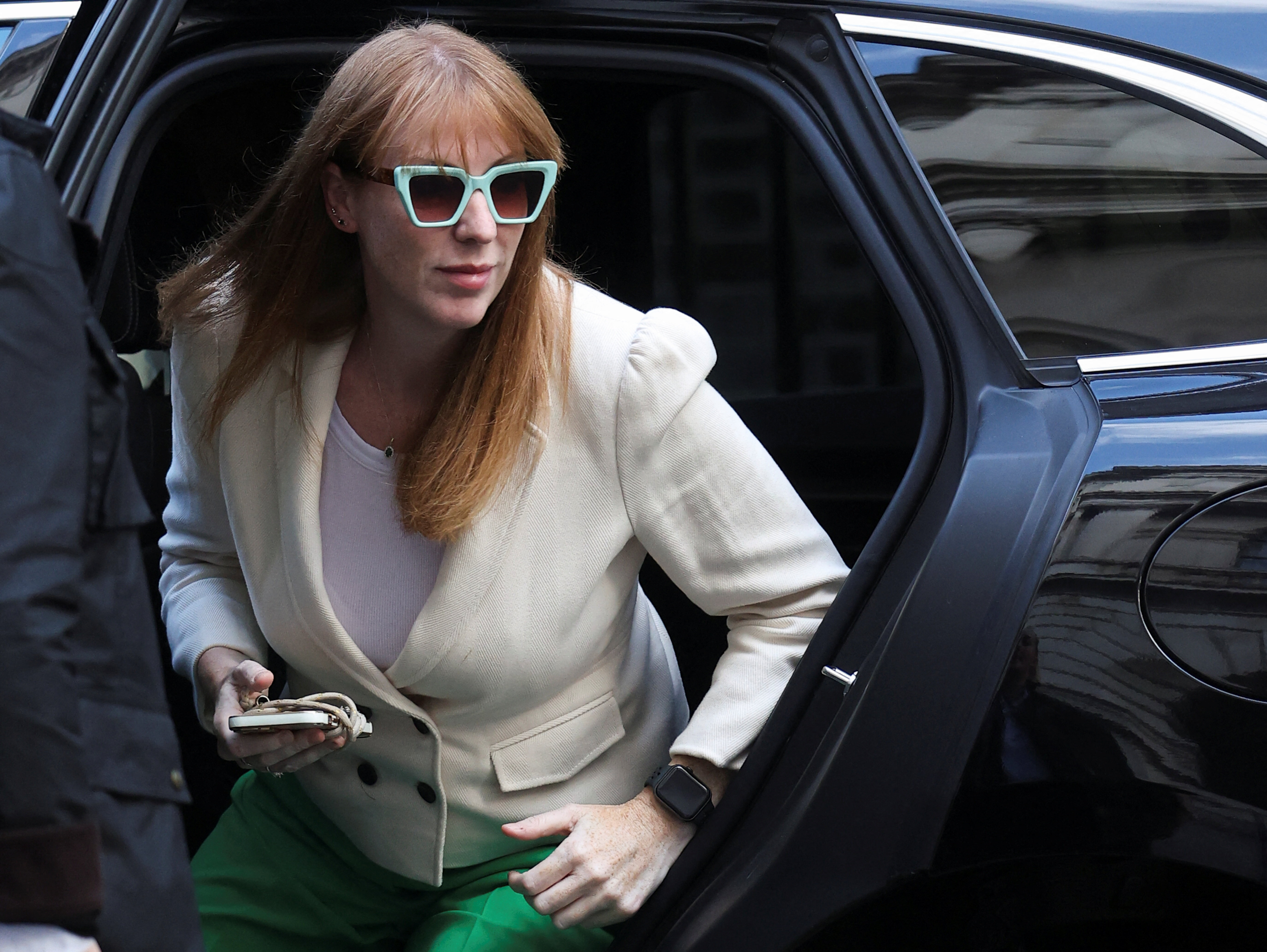British Deputy Prime Minister Angela Rayner resigned on Friday after she admitted underpaying property tax on a new home, in a fresh blow for her boss, Prime Minister Keir Starmer.
Rayner, 45, is the eighth, and the most senior, ministerial departure from Starmer’s team, and the most damaging yet after the British leader offered her his full support when she was first accused of deliberately trying to avoid paying the correct tax rate.
“I deeply regret my decision to not seek additional specialist tax advice… I take full responsibility for this error,” Rayner said in her letter to Starmer.
Starmer said in response that he was very sad that her time in government had ended in this way but she had reached the right decision.
With Labour trailing Britain’s populist Reform UK in the polls, Starmer faces yet more challenges in trying to repair his authority and his party’s image, which has previously been hit by accusations of hypocrisy by critics over accepting expensive items including clothing and concert tickets from donors.
Losing his deputy is particularly damaging, especially as Rayner, who rose from a working-class teenage mother to one of Britain’s highest political positions, had been able to mediate between Labour’s left and centrist wings to keep the party united, and had a wider appeal than Starmer.
Sometimes tipped as a potential successor to Starmer, Rayner had been forced to refer herself to the independent adviser on ministerial standards on Wednesday after admitting that she had made a mistake over the tax payment.
In an interview in which she appeared close to tears, Rayner described setting up a trust for one of her sons, who has life-long disabilities as a result of an injury.
It was to that trust that she sold her share of her family home in northern England to pay for an apartment in the southern English seaside resort of Hove, believing she would not have to pay the higher rate of tax charged when buying a second home.
After taking further legal advice, she then said she had made a mistake and was taking steps to pay the additional tax.
Losing eight cabinet and junior ministers, five of whom resigned over wrongdoing, means Starmer has suffered the most ministerial resignations, outside government reshuffles, of any prime minister at the beginning of their tenure since at least 1979.
Starmer has suffered even more departures than Boris Johnson, the next highest, whose administration was later embroiled in allegations of Covid lockdown-breaking parties.
It leaves Starmer wounded as he prepares for a difficult end to the year, when his government must craft a budget that analysts and markets expect to contain further tax rises and try to contain the growing threat from Nigel Farage’s Reform.
Returning from a summer break on Monday, Starmer had hoped that a reshuffle in his Downing Street team would show he was ready to tackle the second half of the year with renewed vigour, bolstering his economic advice.
But that was quickly eclipsed by the allegations against Rayner and by Farage’s accusation that Starmer was stifling free speech.
Lucy Powell, the leader of Britain’s House of Commons, was sacked by Prime Minister Keir Starmer on Friday as part of a wider government reshuffle triggered by Rayner’s resignation.
Powell said Starmer had told her he intended to replace her with a new Commons leader.
“This has not been an easy time for the government. People want to see change and improvements to their difficult lives,” Powell said in a statement on social media platform X.
She was first appointed to the position – mainly responsible for organising government business in parliament – after the Labour Party’s landslide election win in July, 2024. Labour has since fallen behind Nigel Farage’s populist Reform UK Party in opinion polls.
Scotland minister Ian Murray also left government, according to a statement he posted on X.






Click here to change your cookie preferences